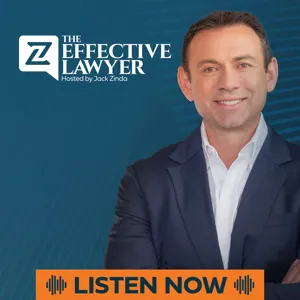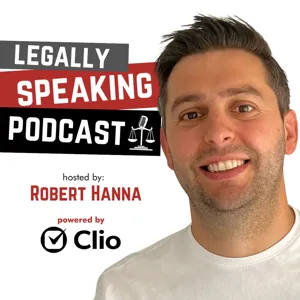The Lifestyle Lawyer: Running a $50k Per Month Solo Practice in 30 Hours a Week | Episode 67 | Unbundled Attorney

The Lifestyle Lawyer: Running a $50k Per Month Solo Practice in 30 Hours a Week | Episode 67 | Unbundled Attorney
In this episode, we interview Clay Wilkinson, a long-time Unbundled Attorney from Dallas, TX. Clay reveals how he has been able to build a lifestyle-driven practice that consistently generates $50k a month in revenue, while working about 30 hours a week.
Since we started working with Clay over 7 years ago, his focus has always been on work-life balance over pure profit. What is most important for him is not building a high volume practice, but rather spending more time with his kids, going on trips around the world, and enjoying his family. However, even though he has optimized his law practice for lifestyle, he's still bene able to build a practice that does exceptionally well financially.
During this interview, Clay discusses the importance of direct client contact, an efficient use of technology for scheduling and communication, and the shift to flat fees for streamlined billing.
Clay also emphasizes customizing legal services to client budgets, responding to online reviews while maintaining confidentiality, and the significance of taking vacations without compromising client service with appropriate application of automation. His insights reflect his commitment to a client-centered, efficient, and balanced legal practice.
In this episode you will learn about:
- Clay Wilkinson's journey from working with a large law firm to becoming a successful solo practitioner
- Importance of maintaining a work-life balance and finding fulfillment in practicing law on your own terms
- The tools he uses to enhance the efficiency of his practice
- Why he provides all of his representation on a flat-fee, limited scope basis
- His unique approach to client intake and ongoing communications
- Importance of managing work volume and taking breaks to avoid burnout
- Practical aspects of managing workload while ensuring that clients are still receiving the prompt legal assistance
- And much more...
Resources Mentioned:
- Calendly (41:28)
If you enjoy this podcast, please head over to iTunes, subscribe to the show, and leave us a review. We love hearing from our listeners and look forward to reading your feedback!
For more information about Unbundled Attorney and how our exclusive, unbundled leads can help grow your practice, visit: https://www.unbundledattorney.com


